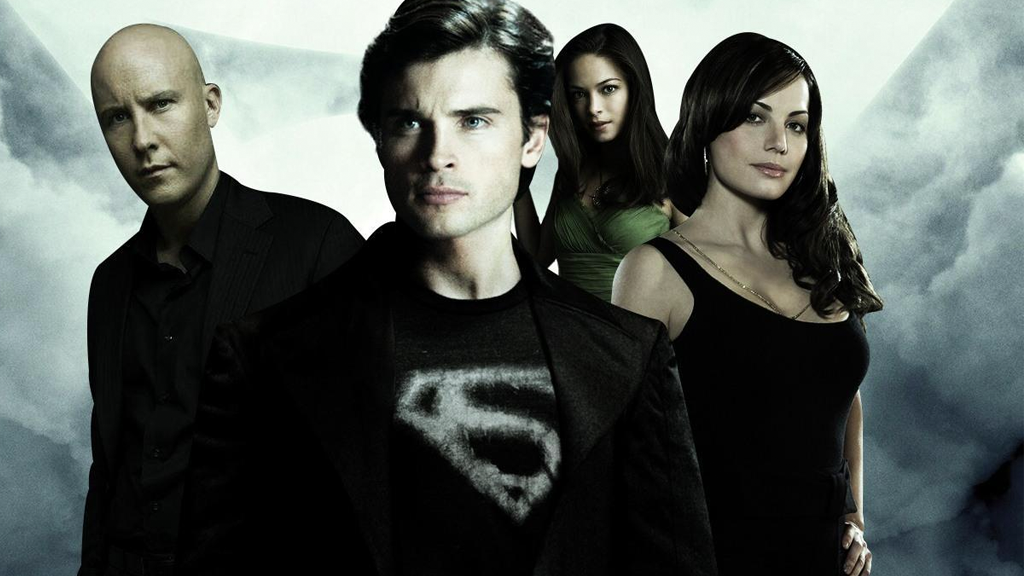"Faster than a speeding bullet, more powerful than ... " Wait a minute, let’s back up. As most of you know, those words almost always prequel the iconic superhero known as Superman. However, we’re not actually going to be talking about him yet. Back in 2000, Warner Brothers had a bold new idea concerning our beloved Man of Steel; turn him into a teenager and drop him in high school, to show his journey into the iconic character we know and love today. And thus, "Smallville" was born.
Before "Arrow," "Supergirl," "Legends of Tomorrow" or "The Flash" dominated our television screens, "Smallville" was the superhero television show of choice. It showcased a young Justice League before it was even a team, showed the evolution of Lex Luthor from a best friend to an arch-nemesis and created a new origin story for one of the most well-known superheroes in the world, Superman.
Although I wasn’t the biggest fan of Superman to begin with, I quickly fell in love with the idea of "Smallville." Watching one of the most iconic superheroes struggle to grow up and learn right from wrong was a great way to build an empathetic connection between Superman and the viewers of this television show. It truly was a breakthrough television series and its run from 2001 until 2011 was the longest of any North American science-fiction series, until it was unseated coincidentally by "Stargate SG-1."
It truly was a breakthrough television series.
Originally, the idea Warner Brothers pitched was to create a television show with young Bruce Wayne’s origin story, however if that had happened, we might not have the acclaimed television show today known as "Gotham." Luckily, this wasn’t meant to be and "Smallville" was created instead. This series did not match the comic’s original storyline and took liberties in creating new characters and relationships for the young Man of Tomorrow.
When "Smallville" first premiered in 2001 it began with Clark Kent’s journey as he entered high school as a fourteen-year-old freshman student. The first four seasons focus on him and his friends as they navigate the tumultuous environment of high school while encountering people infected with green kryptonite, which gave them special powers. Introduced in the series were long-known staples in Superman’s stories, such as Lois Lane, Jimmy Olsen, Perry White, Oliver Queen, Lana Lang as well as Jonathon and Martha Kent.
At the same time, villains such as Lex Luthor, Doomsday, Darkseid and many others were there to challenge him and threaten Earth. New characters were also created to give "Smallville" a breath of fresh air. These characters included Chloe Sullivan, a perky young reporter who would eventually become Clark Kent’s most trusted friend and who was later added to the comic book continuity because of her popularity on the show.
The subsequent seasons, five through 10, dealt with more adult settings. The show quickly expanded to Metropolis and followed Clark Kent’s creation of his Fortress of Solitude, the formation of the Justice League and eventually Clark Kent's evolution from the mild-mannered reporter at the Daily Planet with Lois Lane by day to flying caped crusader by night.
Although Superman’s name is never uttered in this television series, multiple references are made to his future incarnation and various means of foreshadowing are also used, such as Superman’s iconic red and blue colors being worn by Clark Kent in almost every episode.
Throughout the show's 10 seasons, many familiar faces make guest appearances as characters within this television series. A name synonymous with Superman, Christopher Reeves, who played the titular character in the original "Superman" movies which premiered in 1978, appeared in two episodes as the scientist who helps Clark Kent learn his origins. It was a great homage to a great man, who gave inspiration to millions of people by donning the red cape for the second time in cinematic history.
A series regular, Annette O’Toole, who played Martha Kent, also played a young Lana Lang in one of the original "Superman" films. These are only two of the many guest who appeared, but it was a great way of passing the proverbial torch from the older generation who portrayed these iconic characters to the newer generation.
In the beginning of its production, Warner Brothers produced the show but, eventually, The CW took over from the sixth season until the 10th season conclusion. Since the series changed hands, "Smallville" might actually be a part of the "Arrowverse" by use of the multiverse in the coming years. However, this idea may never come to fruition. Even if it doesn’t, "Smallville" has such a rich and unique take on DC superheroes that it is not losing anything by not being attached to the newer CW shows.
Once the show concluded in 2011, it was continued as a comic book series titled "Smallville: Season Eleven." This comic ran from 2011 until 2015 and was comprised of five volumes, each comprised of 19 issues that helped expand the mythology of the much beloved story. This choice allowed characters such as Wonder Woman and Batman to make appearances, whereas in the television show they did not appear. If you decide to watch "Smallville," this is a continuation you should invest in, as it picks up right where "Smallville" season 10 concludes.
If you are a fan of the "Arrowverse," Marvel movies, DC movies or just comic books in general, this is the show for you. Even though it was created in 2001 and you think it might be a bit too young for your taste, just remember that this series chronicles Clark Kent’s life from age 14 to age 24. Superman has had many reiterations and interpretations, probably more times than even Spiderman. "Smallville" was one of the times Superman was done right. You can currently find this series on Hulu and Amazon.








